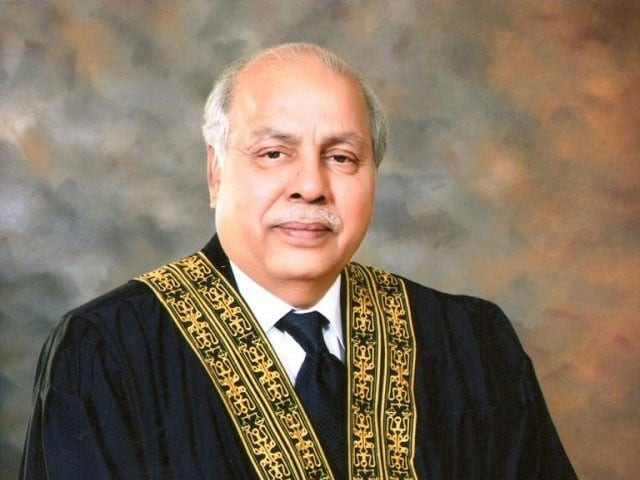State must protect minorities: Supreme Court
Chief justice irked by government's reluctance to assist minority commission

The country's top judge on Friday said the constitution of the country protected the rights of minorities on equal footing and it was the state's responsibility to ensure that they were provided with education, employment and other basic necessities.
A three-member bench of the Supreme Court headed by Chief Justice Gulzar Ahmed inquired about the progress made so far by Dr Shoaib Suddle’s one-member commission established in January last year to implement the 2014 verdict for the protection of minorities’ rights.
Dr Suddle told the court that he had sought the religious affairs ministry's cooperation but had not received a positive response. He added that he then met with the religious affairs minister and tried to explain the gravity of the matter to him but the latter did not appear to be serious about the issue.
Dr Suddle further maintained that civil society organisations did not assist him in achieving the task either.
He added that the religious affairs ministry had set up a separate commission and its secretary had nominated himself as its chairman. The CJ inquired as to how could the secretary do that and whose money was being spent to pay to the members of that commission.
Dr Suddle said the majority of the members of the commission set up by the government were Muslims. Justice Ijazul Ahsan noted that more members of the minority communities should have been members of the commission.
"Institutions should cooperate with the [Dr Suddle's] minority commission," he added. "If no one does, then we are here to deal with matter."
Lawyer Hina Jilani told the court that the formation of a separate commission by the government had been challenged in the courts. "The minority commission should have been independent, but that is not the case," she added.
The court observed that the ministries had not sent a draft for legislation to the one-man commission .
It added that any objections over the draft could have been amended later
However, it noted, the government did not cooperate with the commission formed by the SC and that was beyond comprehension.
The court directed the religious affairs ministry to cooperate with the commission. It also sought a progress report from the commission within a month.
In June 2014, the Supreme Court in its judgment in a suo motu case regarding a bomb blast at a church in Peshawar had asked the federal government to form a national council for minorities’ rights.
The purpose of the council was to advance the practical realisation of the rights and safeguards provided to the minorities under the constitution and present its recommendations to the federal and provincial governments for this purpose.
In January last year, the SC formed the one-man commission to implement the verdict.



















COMMENTS
Comments are moderated and generally will be posted if they are on-topic and not abusive.
For more information, please see our Comments FAQ